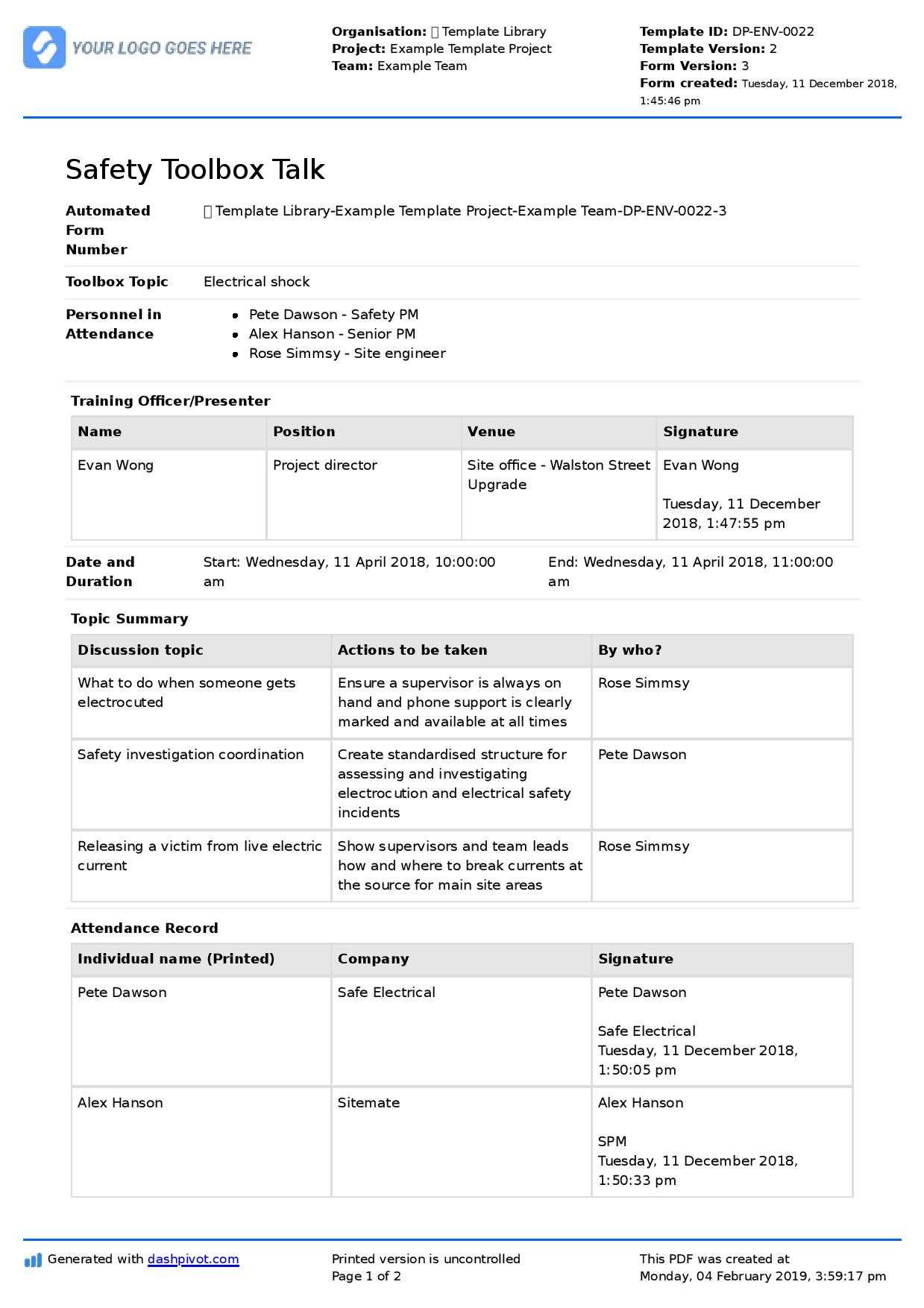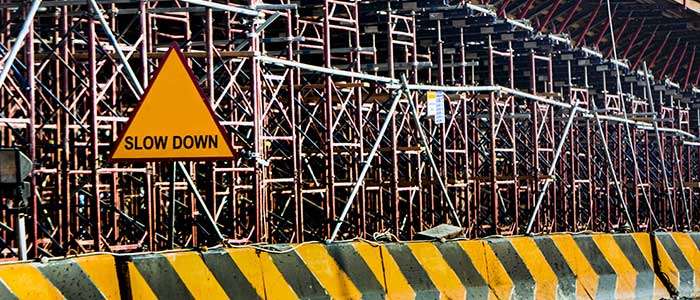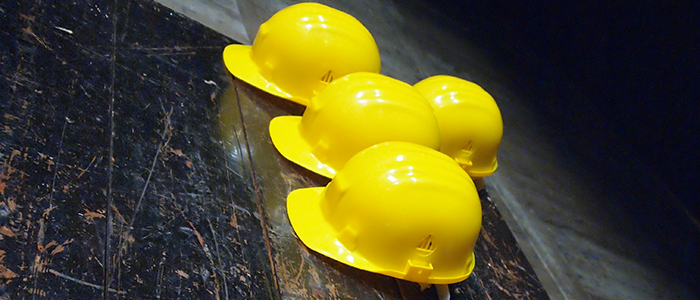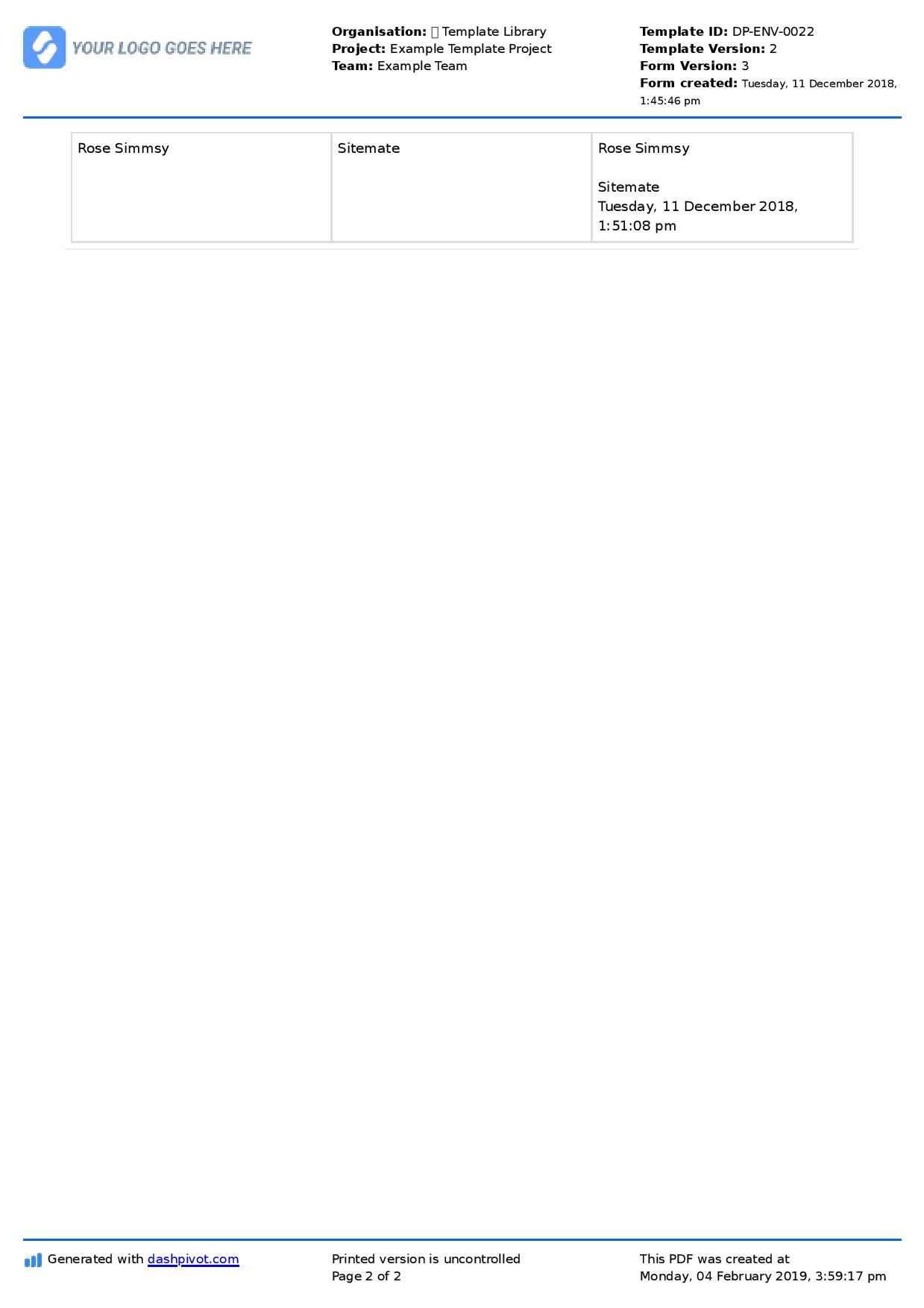Dashpivot article – toolbox talks australia
Toolbox Talks Australia

In Australia, there are a lot of materials and resources to help companies do toolbox talks more efficiently. In this article, we'll focus on toolbox talks for Australia, but much of the article is applicable to other countries as well, as there are many parts of construction and industrial safety in Australia which are applicable to not just Australia.
Toolbox talks are designed to engage employees in meaningful discussions about safety procedures, hazards, risks, and emergency responses. Hosting toolbox talks regularly can help Australian businesses create a safety culture and ensure all employees are aware of the potential risks associated with the workplace.
Are Toolbox Talks Required in Australia?
In Australia, the term “toolbox talk” may not be mentioned explicitly in the Work Health and Safety (WHS) regulations, but the concepts it applies, like consultation, communication, and training about safety matters, are indeed emphasised in the legislative body.
The key points noted from the WHS regulations that relate to the principles behind toolbox talks include the following concepts:
Duty to Consult
Under the Work and Health Safety Act of 2011, employers must consult their workers regarding health and safety matters, especially on the following topics:
- Identifying hazards and assessing risks
- Making decisions about ways to eliminate or minimise those risks
- Deciding on the adequacy of facilities for workers
- Proposing changes that may affect workers' safety
Duty to Provide Training
Employers must ensure that information, training, instruction, or supervision provided to a worker is adequate to protect all persons from risks to their health and safety.
Risk Communication
The WHS regulations emphasise the importance of communicating about risks, including the nature of the risk, any control measures in place, and the reasons for employing the said control measures.
Why Toolbox Talks Matter in Australia?
Toolbox talks serve as a practical means to achieve these requirements, and they provide a structured way to communicate safety information, consult workers about potential hazards, and offer training on new procedures or equipment.
However, while toolbox talks are an effective tool to meet the obligations set by WHS regulations, businesses must ensure that they are also following other requirements outlined in the WHS Act and any specific requirements in their respective state or territory regulations.
Check with local regulatory bodies for specific details, as different states and territories may have additional or varying requirements.
Toolbox Talks Topics for Australian Workplace Settings
Australia has a unique climate, wildlife, and work environment that can impact some of the global toolbox talk topics. Some topics will overlap, but some are specific to the Australian environment. Here are some topics to consider:
General Safety
Manual Handling Techniques: The following topics may be included in toolbox talks, such as pushing, lifting, or pulling techniques.
Personal Protective Equipment: Some employees are working in risky areas, and the proper use of PPE can also be discussed in toolbox talks.
Electrical Safety: For workers dealing near or with electricity, the risks involving electrical hazards can be discussed in toolbox talks.
Heat Stress & Hydration: Australian heat can pose serious risks to workers, and discussing ways to stay hydrated can be a good topic for discussion in toolbox talks.
Bushfire: Workers can be exposed to fire during bushfire season, and it’s always good to be reminded of fire safety and precautions in toolbox talks.
Sun Protection: Extreme UV rays can cause skin damage to workers, which can increase the risk of skin cancer. Being reminded of the dangers of sun exposure and how to mitigate it is also a good topic for toolbox talks.
Working in Wet Conditions: There are high risks with tropical rain and cyclones, especially in northern parts of Australia, and it’s important to discuss safety precautions during these times.
Australian Wildlife and Pest Encounters
Snake and Spider Bites: The most venomous snakes and spiders in the world can be found in Australia, and workers in rural or outdoor areas must be aware of what to do if bitten or about the dangers they pose.
Insect Bites and Stings: Health risks from bites from mosquitoes, wasps, and other insects can be important topics in toolbox talks, especially if workers are exposed to them regularly.
Industry-Specific Topics for Toolbox Talks within Australia
Mining Safety: Since it’s a big industry in Australia, toolbox talk topics specific to the mining industry can also be discussed.
Construction Safety: There are common hazards associated with the construction industry, like falls, equipment use, and manual handling, which can be included in toolbox talks.
Agricultural Safety: For workers in this sector, topics related to farming and agriculture, like tractor safety, chemical use, and handling livestock, can also be discussed.
Mental Health and Well-Being: To prevent burnout, some signs of mental health issues can be discussed, and providing support for colleagues can be a good topic for toolbox talks.
Managing Workplace Stress: Toolbox talks are good chances to discuss ways to cope and reduce job-related stress.
Cultural and Behavioural Topics
Teamwork and Communication: Clear communication and teamwork on site is also a topic to discuss in toolbox talks.
Drug and Alcohol Abuse: Toolbox talks are a chance to reduce the risks associated with substance use and alcohol abuse in the workplace.
Australian Regulatory and Compliance Topics
WHS Updates: Informing employees of changes or updates to the Work Health and Safety regulations is also a good topic to talk about in toolbox talks.
Safe Work Procedures: Toolbox talks are also for outlining and reviewing the company’s procedures and guidelines, which are good safety reminders.
How to Record Toolbox Talks in Australia
Recording toolbox talks in Australia is required to prove and track safety communication under the Australian Work Health and Safety obligations. Listed below are the foolproof ways to record toolbox talks the right way:
Create a Standard Toolbox Talk Form
Toolbox talks are easier if there is a standard form in place that captures all the information you need, like the date, location, presenter’s details, topics, and attendee signatures. However, ensure that there is ample space for action items and comments, and make sure there are sign-offs from the presenter or the immediate supervisor.
Maintain a Record of Attendees
Sign-in sheets, digital or not, keep the record of all the attendees, which indicates they received the required info or the safety instructions from the toolbox talks. This makes sure that when compliance issues arise, the company has evidence of which ones attended the talk.
Be Consistent All the Way
Whether the topic or subject is whatever, it's best to make the documentation uniform, and the uniformity makes it easy to review and compare various toolbox talks.
Attach Supporting Materials or Visuals
If you used visuals, slides, or any other supplemental material during the talk, keep copies with your documentation or make a note of where they can be accessed.
Document Feedback and Action Items
Any concerns, questions, or action items that arise during the talk should be documented, as these notes can help drive safety improvements and show that management is responsive to workers' feedback.
Secure Storage and Easy Retrieval
Store the documents either in a file system or an electronic one safely and ensure duplicate copies exist if the records were kept electronically.
Review Toolbox Talk Records
Consistently reviewing the toolbox talk records will ensure repeating issues are being addressed, ensure attendance, identify workers that may have been absent at particular times, and determine the effectiveness of the talks depending on the provided feedback and after actions.
Below is an example of a safety toolbox talk you can refer to to see the documentation in action.

Manage your toolbox talks with this templated form
Standardise your digital toolbox talks
Toolbox talks, whether run daily, weekly, or at another frequency, can be a lot of repetitive paperwork, and it can be easy to miss information, fields, sections, or signatures if you're not following the same format every time.
Use a digital toolbox talk template to plan your toolbox talks before you conduct them, detailing the project, date of talk, toolbox talk topic, and even any attachments you want to add. You can customise it to your needs with the drag-and-drop form builder if you have any specific business or project requirements.
There are sections to capture on-site feedback and take attendance, so you can keep track of who's been to which toolbox talks. You can easily attach photos and videos, or take them on-site and attach them to your toolbox talk to showcase recent hazards or near misses, techniques to work, new equipment, and more.

Near Miss Reporting template
Keep your site safer by making your near miss reporting procedure safe and streamlined.

Permit to Work template
Digitise and automate the permit approval process for any safety permit to work with this flexible template.

Job Hazard Analysis template
Easily complete a JHA on any device, and then keep all of your job hazard analyses neatly organised and searchable.
